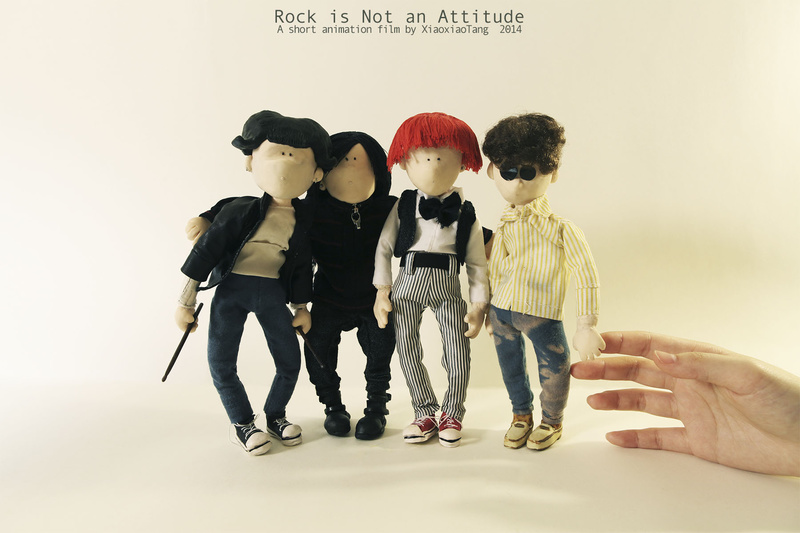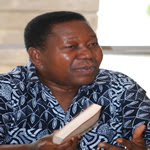ROFFEKE: You are the writer and producer of "Crossing Borders". What elements of the screenplay changed, from the time you took off your writer's hat and put on your producer's hat?
James Fouche: Crossing Borders was conceptualised and scripted as a TV series that would run for at least three seasons. While this is still the dream, filmed the short film to be a completed short film. Very little changed from script to screen. As the words became reality, the screenplay became the truth for everyone on set, even for me as I tried to switch between my writer and producer hats. We all believed in it. Strange as it sounds, that was liberating.
ROFFEKE: What inspired this story?
James Fouche: Immigration is as current as it is sensitive. I wanted to touch on the crossing of borders, or the policing thereof. The theme inspired the tone, which is why amber and yellow was generously incorporated throughout. Beyond that, I wanted to paint a truly African version of Jack Reacher, someone the whole world could easily relate to regardless of creed, culture, or colour.
ROFFEKE: Why the near-future setting and what were the advantages and challenges of setting the story in the near-future?
James Fouche: I chose the near future, assuming that by that time South Africa would have taken strides towards better border control. I further assumed that the policing of borders would become outsourced, much like bounty hunters in America. This practice of outsourcing immigration processes in SA was trialled in the early 2000's, but quickly discarded due to the exposure of corruption. The challenges were considering the surroundings and the transportation for such a small leap into the future. Ultimately, by looking at the past, I predicted that not much would change.
ROFFEKE: The theme of crime runs through "Crossing Borders" and
your books "Jack Hanger" (a criminal mastermind kills his brother) and "King of Sorrow" (the protagonist "is pitted against the corporate world, where crime, mystery and intrigue hide in plain sight"). Why crime and not more "hopeful" themes? What would you say is the hopeful/hopepunk element in "Crossing Borders"?
James Fouche: I think crime is an ever-present element today. To avoid talking about it, certainly won't solve anything. I believe most crime writers do so in the hopes that they will unpack something, raise concerns, and offer possible solutions in the process, It's not always doom and gloom in the mind of a crime writer. In the wake of sadness and misery, often follows rebirth, renewal and hope for a future generation. The lead character of Crossing Borders, as I envisioned the TV series, was an African version of Jack Reacher. A lone hero who seeks only to do his job, who believes in justice, whose love is pure, whose passion is admirable, and who does good without being asked to do so. There is nothing more hopeful than that.
ROFFEKE: The lead actor, Aphiwe Nqevu, is so talented! Did you have him, or someone like him, in mind while writing the screenplay and as the producer, how much of a say did you have in the casting process?
James Fouche: I conceived the character of Bhongo just before the pandemic came around. During the national lockdowns I kept pecking at the character and discussed him with my wife, who is often my sounding board. I had engaged with Aphiwe numerous times prior to this. Then, one day, as we sat in a local coffee shop, Aphiwe strolled in without knowing that we were there. Something in my mind just clicked. I looked at my wife and said that I was looking at Bhongo. My wife immediately agreed. Aphiwe is the kindest soul, and is often called the township pastor. His natural flair for acting and how he bloomed after Neels van Jaarsveld arrived on set, has me convinced that he has what it takes to become a professional actor.
ROFFEKE: The whole film was a treat to watch but my (Mildred Achoch) favourite moment is the running-across-the-field scene. The accompanying song - and of course I am very biased - adds to the excitement. Why a rock song and not, say, Kwaito or House or Hip Hop? (This question is for you and/or the director, Chris Wilson).
James Fouche: That scene was the director's pride and joy. As an avid Guy Ritchie fan, Chris came to me with a proposal for the chase scene. I was the producer and he was the director. It was my job to trust him implicitly and it was his job to pour his creativity and passion into the project by blowing life into the words. While I might have given guidance to the musical tone, it was Chris who chose that song. I surmise that he felt my aspirations of taking a truly African hero and showcasing that to the world in a way that made him instantly human and relatable. We wanted music that didn't denote a specific location, again crossing borders and reaching a wider audience.
ROFFEKE: Advice for writers who want to become writer-producers?
James Fouche: Keep at it. Do not stop. Write, write, write.
Read a review of Crossing Borders
HERE.




























































































































































































No comments:
Post a Comment